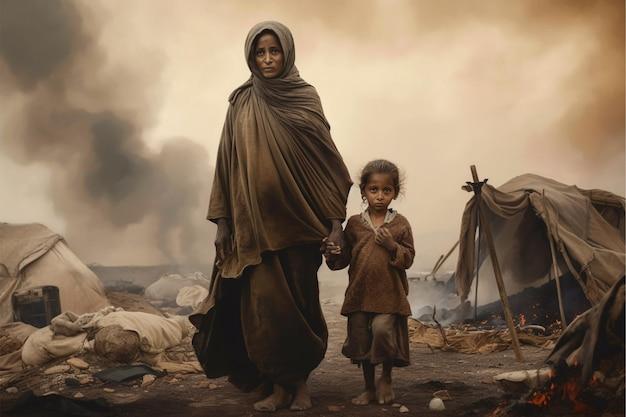Welcome to my blog post on the timeless classic, “Oliver Twist” by Charles Dickens. Published in the mid-19th century, this novel takes us on a riveting journey through the gritty streets of Victorian London, shedding light on the social injustices rampant during that era. In this post, we will delve into some of the most serious problems discussed in “Oliver Twist” and explore how Dickens skillfully addresses them through his memorable characters and captivating storytelling.
Dickens beautifully highlights the stark realities faced by the lower classes, particularly the orphaned and impoverished children like Oliver Twist. As we follow Oliver’s tumultuous life, we encounter several pressing issues that continue to resonate with contemporary readers. From the harsh treatment of children in workhouses to the corruption and hypocrisy within the justice system, Dickens fearlessly exposes the dark underbelly of society.
So, grab a cup of tea and join me as we embark on a thought-provoking exploration of the serious problems that form the backbone of “Oliver Twist.” Together, let’s uncover the enduring relevance of Dickens’ social critique and how it casts a critical eye on the flaws and injustices of human society.
Let’s dive in!

What are some of the most serious problems discussed in “Oliver Twist”?
Charles Dickens’ classic novel “Oliver Twist” delves into various serious problems prevalent in the society of 19th century England. Through his witty storytelling and memorable characters, Dickens sheds light on the dark side of Victorian London. From poverty and social injustice to child labor and crime, the novel captures the harsh realities faced by the lower classes. In this subsection, we will explore some of the most pressing issues highlighted in “Oliver Twist” and the impact they had on society.
Poverty: A Grueling Reality for Many
Poverty stands at the forefront of the novel, painting a bleak picture of the lives of many during that era. Oliver’s existence in the workhouse, his subsequent escape, and his encounters with the criminal underworld all hinge on the desperate circumstances created by destitution. Dickens masterfully portrays the stark contrast between the lavish lifestyles of the wealthy and the impoverished lives of the majority.
Social Injustice: The Unequal Divide
“Oliver Twist” underlines the social injustices prevalent in Victorian England. The stark class distinction between the wealthy and the poor is emphasized throughout the novel. Institutions like the workhouse and the justice system are exposed as corrupt and merciless, making it nearly impossible for individuals like Oliver to rise above their circumstances. Dickens urges readers to consider the impact of social inequality and critique the existing power structures.
Exploitation of Children: A Heartbreaking Reality
One of the most heart-wrenching themes in “Oliver Twist” is the exploitation of children. Dickens vividly describes the abuse suffered by orphaned children, forced into labor at an early age. Whether it’s Oliver’s experience as an apprentice or the plight of the street children, the novel sheds light on a dark aspect of society that often went unnoticed. Through Oliver’s innocence and resilience, Dickens appeals to the reader’s empathy and calls for reform.
Crime and Criminality: The Underbelly of Society
Dickens expertly portrays the world of crime and criminality that thrived in the underbelly of Victorian London. Characters like Fagin, the Artful Dodger, and Bill Sikes inhabit the criminal underworld and give readers a glimpse into the dangerous and ruthless life of thieves and con artists. The novel shed light on the circumstances that drove individuals to a life of crime and the challenges faced by those who sought redemption.
In “Oliver Twist,” Charles Dickens deftly explores several serious problems plaguing Victorian society. From the pervasive presence of poverty and social injustice to the heart-wrenching exploitation of children and the shadowy world of crime, the novel sheds light on the darker aspects of life during that time. Through his brilliant storytelling and social commentary, Dickens encourages readers to reflect on the issues that plagued society then and, by extension, those that persist today. The novel serves as a reminder of the importance of compassion, empathy, and the fight for a more just and equitable society.

FAQ: Serious Problems Explored in Charles Dickens’ Oliver Twist
Oliver Twist, the renowned novel by Charles Dickens, takes readers on a captivating journey through the dark alleys of Victorian London. Filled with vivid characters and gripping tales, this timeless story delves deep into the social issues prevalent during the era. In this FAQ-style subsection, we will address some of the most frequently asked questions about the serious problems discussed in Oliver Twist. So, let’s immerse ourselves in this fascinating world and uncover the answers!
What was Oliver Queen called in Russia
Unlike our beloved vigilante from the hit television series Arrow, Oliver Twist was not whisked away to Russia and reimagined as Oliver Queen. Although both characters share the name “Oliver,” their stories exist in separate fictional universes. However, if you ever find yourself in Russia, be sure to keep an eye out for any remarkable young boys with a penchant for archery and justice!
Is Lian Yu a real island
Lian Yu, the treacherous and mysterious island where Oliver Queen was stranded in the Arrow series, is purely a product of the creative minds behind the show. In reality, Lian Yu doesn’t exist as a physical island. So, if you’re planning an adventurous trip to track down Oliver Queen and hone your fighting skills, you might have to rethink your itinerary. But hey, there are plenty of other beautiful islands to explore, just without the explosive booby traps and shady secret organizations!
What happens to monks in Oliver Twist
Within the pages of Oliver Twist, we encounter a variety of characters, but monks take on a particularly devious role. These conniving individuals form a part of Fagin’s criminal gang, constantly plotting and scheming. They exploit the innocence of young boys like Oliver Twist, luring them into a life of pickpocketing and thievery. These monks are a stark representation of the corruption and moral decay prevalent in Victorian society. So, beware of anyone in a monk’s robe offering a seemingly innocent proposition, for they may be harboring darker intentions!
What are some of the most serious problems discussed in Oliver Twist
Oliver Twist paints a vivid picture of the social ills that plagued Victorian England. Charles Dickens fearlessly explores important themes, including poverty, child labor, crime, and the harsh conditions of workhouses. The novel shines a spotlight on the stark divide between the privileged and the impoverished, exposing the harsh realities faced by the lower classes. Through Oliver’s journey, we witness the exploitation of children, the harsh treatment of orphans, and the desperation that drives people to crime. Dickens’ powerful storytelling forces us to confront these pressing issues and question the morality of society as a whole.
How did Bill Sikes meet his demise
Bill Sikes, one of the most memorable characters in Oliver Twist, meets a rather dramatic end. Consumed by inner turmoil and paranoia, Sikes becomes overwhelmed by guilt after the murder of Nancy, his partner-in-crime and lover. In a fit of desperation, he attempts to flee the city but ends up inadvertently hanging himself while trying to escape through a rooftop. Dickens masterfully uses this shocking demise to highlight the consequences of a life steeped in crime and cruelty.
There you have it! We’ve addressed some of the most burning questions regarding the serious problems discussed in Charles Dickens’ Oliver Twist. The novel’s enduring impact lies in its unflinching portrayal of societal issues, reminding us of the importance of compassion, justice, and the fight against inequality. So, whether you’re revisiting this literary gem or delving into it for the first time, prepare to be captivated by its timeless themes and unforgettable characters. Keep exploring, keep questioning, and keep championing change!
